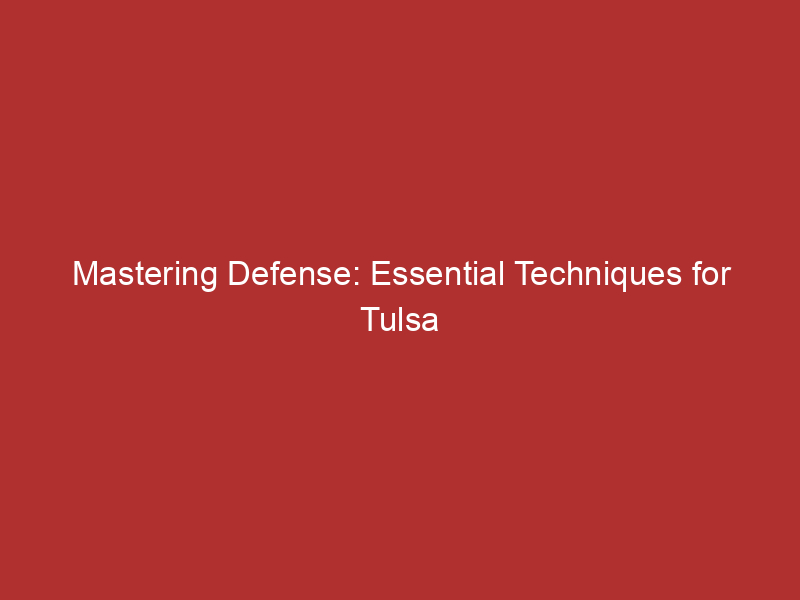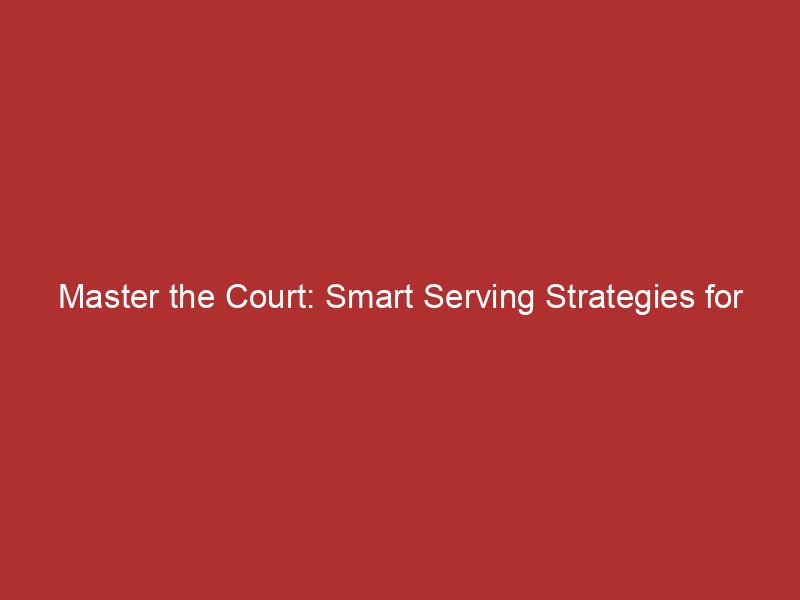Introduction to Defense Techniques in Volleyball
Welcome to our comprehensive guide on the fundamentals of defense in volleyball. Whether you’re a beginner or an experienced player, understanding the importance of defense and its basic principles can significantly improve your game.
- Understanding the Importance of Defense in Volleyball
- Basic Principles of Volleyball Defense
- Positioning: This involves being in the right place at the right time. A player must always be ready to move quickly to where the ball is likely to land.
- Communication: Volleyball is a team sport, and effective communication is crucial. Players need to constantly talk to each other, signaling where they are and where the ball is going.
- Anticipation: This is about predicting where the opponent will send the ball. By observing the other team’s formation and movements, players can anticipate the ball’s trajectory and react accordingly.
Defense in volleyball is not just about preventing the other team from scoring points. It’s about positioning, anticipation, and teamwork. A strong defense can turn the tide of a game, making it an essential aspect of volleyball.
According to statistics, teams with a strong defense have a higher win rate. For instance, in the 2019 Volleyball World Cup, the teams with the highest block and dig numbers were among the top three. This shows that a good defense can be a game-changer.
The basic principles of volleyball defense revolve around three key areas: positioning, communication, and anticipation. Let’s break them down:
Mastering these principles will not only improve your defense but also enhance your overall performance in the game.
Improving Volleyball Defense: Key Strategies
When it comes to volleyball, a strong defense is just as important as a powerful offense. The key to a successful defense lies in mastering a few crucial strategies. Let’s delve into these strategies that can help Tulsa volleyball teams improve their defensive game.
Volleyball Defense Strategies for Tulsa Volleyball Teams
Here are three key strategies that can significantly enhance the defensive skills of any volleyball team:
- Positioning on the Court
- Effective Communication
- Anticipating the Opponent’s Moves
Knowing where to stand on the court is a fundamental aspect of a strong defense. Each player should understand their role and where they need to be at any given time. For instance, the back row players should be ready to dig the ball, while the front row players should be prepared to block the opponent’s attack. Proper positioning allows the team to cover more ground and makes it harder for the opponent to find an open spot.
Communication is vital in volleyball. Players need to constantly talk to each other, calling out who will take the ball and warning about potential threats from the opposing team. Effective communication can prevent confusion and missed opportunities, leading to a more cohesive and successful defense.
Anticipating the opponent’s moves can give a team the upper hand in defense. By watching the opposing team’s formation, the direction of their set, and the body language of their hitters, players can predict where the ball is likely to go and position themselves accordingly. This requires practice and keen observation skills, but it can significantly improve a team’s defensive performance.
In conclusion, improving volleyball defense requires strategic positioning on the court, effective communication among team members, and the ability to anticipate the opponent’s moves. By mastering these strategies, Tulsa volleyball teams can strengthen their defense and increase their chances of winning.
Volleyball Training in Tulsa: Enhancing Defense Skills
Defense is a crucial aspect of volleyball. It determines the team’s ability to prevent the opposing team from scoring points. In Tulsa, volleyball training focuses on enhancing defense skills to build stronger, more competitive teams. Let’s delve into some of the techniques used in Tulsa volleyball team training to improve defense.
Tulsa Volleyball Team Training: Defense Techniques
In Tulsa, volleyball team training employs a variety of defense techniques. These techniques are designed to improve the players’ blocking and digging skills, as well as boost their reflexes and agility. Below are some of the key techniques used:
- Drills for improving blocking: Blocking is a vital defensive technique in volleyball. It involves jumping and extending the arms to prevent the ball from crossing the net. In Tulsa, volleyball training includes drills such as shadow blocking and wall blocking to improve this skill. These drills help players to enhance their timing, positioning, and jumping ability.
- Exercises for enhancing digging skills: Digging is another important defensive skill in volleyball. It involves receiving the ball in a manner that allows it to be played offensively. Exercises such as the pancake drill and the dive and roll drill are used in Tulsa volleyball training to enhance digging skills. These exercises improve players’ reaction time and body control, enabling them to effectively receive and control the ball.
- Training routines for boosting reflexes and agility: Reflexes and agility are crucial for effective defense in volleyball. They enable players to quickly react to the ball and move swiftly on the court. Training routines such as agility ladder drills and reaction ball drills are used in Tulsa volleyball training to boost these skills. These routines enhance players’ speed, quickness, and reaction time, making them more effective in defense.
By incorporating these techniques into their training, Tulsa volleyball teams are able to enhance their defense skills, making them more competitive and successful on the court.
Tulsa Volleyball Coaching: Focusing on Defense
In the world of volleyball, defense is a critical aspect that can make or break a game. In Tulsa, coaches are focusing more and more on enhancing the defensive skills of their players. Let’s delve into how they are achieving this.
Role of Coaches in Improving Volleyball Defense
Coaches play a pivotal role in improving the defensive skills of a volleyball team. Their strategies and techniques can significantly impact the team’s performance. Here are some ways they contribute:
- Providing Constructive Feedback
- Implementing Effective Training Programs
- Building a Strong Team Dynamic
Coaches in Tulsa are known for their ability to provide constructive feedback. They observe the players during practice and games, noting their strengths and areas for improvement. They then provide feedback in a way that encourages players to improve their skills, rather than discouraging them. For instance, instead of saying “You’re not blocking well,” a coach might say, “Let’s work on your blocking technique to make it more effective.”
Another crucial role of a coach is to implement effective training programs. These programs are designed to improve the players’ defensive skills, such as blocking, digging, and positioning. For example, a coach might organize drills that focus on quick reflexes and agility, both of which are essential for good defense.
Finally, coaches in Tulsa work hard to build a strong team dynamic. They understand that a team that works well together is more likely to succeed on the court. They foster a sense of camaraderie and mutual respect among the players, which translates into better coordination and communication during games. This, in turn, leads to a stronger defense.
In conclusion, coaches in Tulsa are making a significant impact on the defensive skills of their volleyball teams. Through constructive feedback, effective training programs, and a strong team dynamic, they are helping their teams excel in this critical aspect of the game.
Volleyball Defense Tips: Techniques for Volleyball Defense
Defense in volleyball is a crucial aspect of the game. It’s about anticipation, quick reflexes, and strategic positioning. Let’s dive into some practical tips and techniques that can help enhance your defensive skills, especially if you’re in Tulsa.
Practical Tips for Enhancing Defense Skills in Tulsa
Whether you’re a beginner or an experienced player, these practical tips can help you improve your defense skills in volleyball. Remember, practice makes perfect, so don’t be discouraged if you don’t master these techniques immediately. Consistent practice will lead to improvement.
- Staying low and ready: In volleyball, it’s essential to stay low and ready. This position allows you to move quickly in any direction and react to the ball’s movement. It’s about keeping your knees bent and your body weight forward. This way, you can dive, roll, or move sideways to keep the ball in play.
- Keeping eyes on the ball: Always keep your eyes on the ball. This might seem obvious, but it’s easy to get distracted by the other team’s movements. By focusing on the ball, you can better anticipate its trajectory and make a successful defensive play.
- Practicing footwork: Good footwork is the foundation of a strong defense in volleyball. Quick, agile movements can help you reach the ball in time. Practice drills that improve your speed, agility, and coordination. Remember, every step counts when you’re trying to save a point.
By incorporating these tips into your training routine, you can become a formidable defender on the volleyball court. Remember, defense is not just about individual skills; it’s about working as a team. So, communicate with your teammates, support each other, and together, you can build a strong defense.
Case Studies: Successful Defense Techniques in Tulsa Volleyball Teams
Let’s take a look at some real-life examples of successful defense techniques used by volleyball teams in Tulsa. These case studies will show you how effective strategies can significantly improve a team’s defensive performance.
Examples of Effective Volleyball Defense Strategies
- Case study 1: Team A’s successful use of blocking techniques
- Case study 2: Team B’s effective communication on court
- Case study 3: Team C’s improvement in defense through rigorous training
Team A is known for their exceptional blocking techniques. They have mastered the art of timing and positioning to prevent the ball from crossing the net. Their blockers work in unison, forming a wall that is hard to penetrate. This strategy has led to a significant decrease in the number of points scored against them.
Team B’s defense strategy hinges on effective communication. They have developed a system of verbal and non-verbal cues that allow them to quickly react to the opposing team’s moves. This has not only improved their defensive performance but also fostered a sense of unity and teamwork.
Team C’s defense improvement is a testament to the power of rigorous training. They have a dedicated defense coach who has implemented a strict training regimen. This includes drills to improve agility, reaction time, and coordination. Their hard work has paid off, with a marked improvement in their defense performance over the season.
These case studies highlight the importance of strategy, communication, and training in volleyball defense. By learning from these successful teams, you can improve your own defensive skills and help your team achieve greater success.
Conclusion: Mastering Defense for Tulsa Volleyball Teams
In conclusion, mastering defense in volleyball is a crucial aspect that can significantly influence the outcome of the game. For Tulsa volleyball teams, focusing on defense can be the game-changer that propels them to victory. Let’s summarize the key takeaways and look at the future trends in volleyball defense techniques.
- Key takeaways for improving volleyball defense
Improving volleyball defense requires a combination of skills, strategies, and consistent practice. Here are the key takeaways:
- Positioning: Proper positioning on the court is vital. Players should always be ready to move in any direction and cover their area of the court effectively.
- Communication: Teamwork is essential in volleyball, especially on defense. Players should communicate constantly to ensure everyone knows their role and position.
- Anticipation: Reading the opposing team’s movements and anticipating their plays can give a team the upper hand in defense.
- Training: Regular and focused training is key to improving defensive skills. This includes drills that enhance agility, speed, and reaction time.
- Future trends in volleyball defense techniques
As the game of volleyball continues to evolve, so do the techniques used in defense. Here are some future trends to watch out for:
- Technology in Training: The use of technology in training, such as virtual reality and motion sensors, is expected to become more prevalent. These tools can help players improve their reaction times and decision-making skills.
- Data Analysis: Teams are increasingly using data analysis to study their opponents and develop effective defensive strategies. This trend is likely to continue as more sophisticated data analysis tools become available.
- Physical Conditioning: As players become more athletic, the importance of physical conditioning in defense is expected to grow. This includes strength training, flexibility exercises, and endurance training.
By understanding and implementing these key takeaways and staying abreast of future trends, Tulsa volleyball teams can master their defense and achieve greater success on the court.






